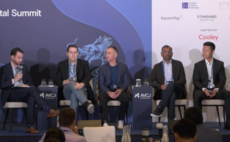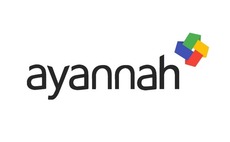
Strained relations: Foreign PE and financial services

Global buyout firms have seen less deal flow in South Korea in recent years, with financial services sector activity a shadow of its former self. This doesn’t necessarily mean they are unwelcome
Is South Korea losing its relevancy with global buyout firms? The Blackstone Group made its debut investment in the country in 2011 but it wasn't a control deal. TPG Capital, The Carlyle Group and CVC Capital Partners, once active buyout players, have mustered only one deal between them in the past six years - and that was Carlyle's acquisition of a minority position in Hyundai Communications and Network. KKR bought Oriental Brewery with Affinity Equity Partners in 2009 for $1.8 billion, but the seller was foreign, Belgium-based AB InBev.
The turning point appears to have been 2006. The previous year foreign players accounted for nearly all of the $3 billion transacted in PE deals, with buyouts alone contributing 60% of the total. This was the last time foreign funds were responsible the majority of capital deployed. It was also the last year that foreign buyouts accounted for any more than one quarter of total deal flow.
The emergence of domestic private equity firms and then the global financial crisis have both played a role in this process. Indeed, foreign GPs have never deployed more than $3 billion in Korea in a single year, but PE investment has comfortably beaten this mark four years in the past six.
What also happened from 2006 was the fallout from foreign PE firms' investment in Korean banks really began to bite. And it continued to make headlines all the way through last year with Lone Star's acrimonious and protracted exit from Korea Exchange Bank (KEB). It would appear the buyout firms are no longer welcome, although this view is contested by some industry participants and complicated by other factors.
"Local banks are no longer easy objects for foreign firms to acquire, especially for a controlling stakes - and since the Lone Star deal and its related woes, foreign investors increasingly do not favor such deals," says Eugene So, vice president at fund-of-funds FLAG Squadron Asia. "In the period after the Asian financial crisis in the late 1990s, foreign PE firms made acquisitions supported by capital injections from local governments to save banks. Now these banks are viewed as public assets and so investment is a sensitive topic."
Negative sentiment is blamed for crushing any hint of foreign involvement in the government's various attempts to offload its majority stake in Woori Finance Holdings.
"The notion that any private equity firm might acquire the nation's second-largest bank financial services group is something people have issues with, whether it is sole or multiple bidders," adds Scott Hahn, managing partner at Hahn & Co. "Even now you have Lone Star in the papers over certain aspects of KEB's business. The stigma hasn't gone away; in fact, it is remarkable how it hasn't gone away."
Hard times
Lone Star's tenure at KEB is rapidly passing into legend as a worst case scenario for private equity investment. What started out as a turnaround story soured as Lone Star was investigated was manipulating KEB's stock price around the time of its purchase of a 51% stake for $1.2 billion in 2003.
The private equity firm was eventually found guilty, fined and ordered to sell down its stake, but the real damage was done during the legal proceedings as Lone Star's attempts to sell KEB were repeatedly blocked. Lone Star, which eventually exited the asset to local player Hana Financial, is currently pursuing an arbitration claim against the Korean government for unlawfully interfering in its property rights.
However, the origin of tensions between foreign private equity and the Korean authorities is the Asian financial crisis of 1998 and the subsequent Korean credit crisis, which required a $5 billion bailout from the IMF, granted on the condition of financial sector restructuring. The distressed opportunities that arose were really where global buyout firms gained their first foothold in Asia. The era was characterized by acquisitions of Korea First Bank and KorAm Bank by Newbridge Capital and Carlyle, respectively.
The phenomenal success of these deals didn't sit well with the government, which cast the private equity firms as having taken advantage of the economic troubles for their own commercial ends. "Once the economy recovered, they realized the poisonous face of foreign private equity. These firms were described as ‘vulture capital' and this only intensified after Lone Star," one pan-Asian GP says. "They didn't see Korea as long-term market that would generate ongoing deal flow and now it is hard for them to re-enter."
Taigon Kim, senior partner and head of South Korea in Headland Capital Partners, which was then HSBC's captive private equity unit in Asia, describes how being part of a bank helped ease the tension. "At that time we were part of HSBC and that brand is strong in Korea," he says. "Since we became independent we no longer carry the HSBC name but they still own 20% of the GP. They are still an affiliate and we talk to potential clients about our culture and history. They can easily check my track record in Korea."
Between 2000 and 2006, there were 23 private equity investments in Korea's financial services sector, 18 of them by foreign firms. The deal count rose to 34 between 2007 and 2012, but only seven were foreign. This came even as total investment in the sector rebounded from a low of $66.3 million in 2004 to surpass $500 million a year for 2007-2011 and then reach $1.8 billion in 2012, a higher level than during the post-crisis turnaround times.
Admittedly, there were two significant foreign deals last year as Ontario Teachers' Pension Plan (OTPP) and an Affinity-led consortium each picked up stakes in Kyobo Life Insurance.
But to what extent do these numbers reflect a negative feeling towards private equity as opposed to private equity itself losing interest in Korean financial services?
The post-crisis deals were attractive because they came at near fire-sale prices. In normal circumstances, Korea is regarded as a mature economy by Asian standards and its financial services sector is well penetrated; there aren't going to be many growth investments as might be found in China and India. Furthermore, banks - and savings banks in particular - are under pressure, so it's harder to make money.
"This is a country where the best financial institutions are trading at 0.7x book value," says Hahn & Co's Hahn. "We are talking about the best managed financial groups in the country."
Industry participants note that there is still room for growth in certain segments of financial services, citing insurance and leasing as examples.
Yet the Kyobo Life deal had been around for four years before the latest round of investments, becoming ever cheaper. The selling shareholders, Korea Asset Management Corp. and steelmaker Posco, only took ownership of the asset after its parent, Daewoo, went bankrupt in 1999 and never considered themselves to be long-term investors.
A Corsair Capital-led group bought a 7.41% stake in 2007 at a reported 1.5x book value; when the Affinity consortium came in for a 24%, the valuation was below book value, according to sources familiar with the transaction. A consortium was necessary because individual foreign investors are barred from holding more than 10% of a Korean insurer.
"Historically, financial and credit crises in Korea have resulted in distressed assets being sold, which have created many opportunities for PE funds to invest.
However, I think those sorts of opportunities are tapering off, and in the absence of such macroeconomic crisis or restructuring-driven opportunities, PE activity, particularly for foreign players, seems to be going back to a more normalized level," says Hyung Jung Ahn, head of the Korea practice at law firm Linklaters.
Rise of local rivals
Even where foreign private equity investors are interested in participating they face increased competition from domestic players. Michael Kim, the former president of Carlyle Asia who led the KorAm Bank deal before spinning out to form North Asia-focused buyout firm MBK Partners in 2005, may be the most prominent example but he is by no means alone.
"There have been some significant developments in the private equity space whereby local teams with previous global private equity experience spin-out to start their own shops with a focus on Korean domestic investments," says FLAG Squadron's So. "This is expected to continue and it will provide an interesting story. The market is becoming more sophisticated."
One of the driving factors behind MBK was the desire to create an Asian firm operating in Asia owned and operated by Asians. It was seen as a local alternative to the global players, but it didn't take the global players long to catch on to the benefits of localization, in Korea as elsewhere in the region.
The firms that have built up teams on the ground over 5-10 years - KKR, Affinity and Olympus Capital are frequently mentioned in this context - are still managing to do deals even as the foreign buyout flame has spluttered. Newer entrants that don't have the advantage of these networks are more likely to struggle. The key issue for firms with a regional platform is how active they expect to be in Korea and whether this justifies the expense of setting up a full operation in the country.
"Some of these firms haven't decided that Korea is so compelling that they would allocate so much capital to the country," one Korea-focused GP observes. "They might end up doing what Baring Private Equity Asia is doing - hire one guy as an advisor to be their eyes and ears, and be happy to look at a couple of deals a year. They aren't completely shut off from the market but don't have a heavy commitment on the ground."
There remains among Korean managers and owners what some describe as an "irrational fear" of foreign investors - private equity in particular - that derives from a combination of cultural and lingual differences and occasionally conflicting expectation in terms of management and governance. This might lead them to choose a domestic player over a foreign one, all other considerations being equal.
"Public auctions tend to be pretty colorblind, but if it's private control deal for whatever reason - it could be a union issue, you don't want to be seen as being in financial distress by selling this asset, you don't want to open it up to a competitor - they tend to reach out to the people they are most comfortable with. The people they can talk to, that they can trust and rely on, that are predictable from their perspective," says Jason Shin, managing partner at domestic GP Vogo Investment.
Is Lone Star responsible for this state of affairs? Probably not, is the consensus view. "It's always been tough, even before the problems with Lone Star," says one pan-regional buyout fund manager. "The country has never been that friendly to foreign investors - it is quite a nationalistic market."
Linklaters' Ahn argues that the evidence doesn't support such an extreme assessment. The Korean government didn't set out to create regulatory obstacles for foreign investors and this hasn't stopped overseas private equity funds operating in the country if they choose to. It is more about timing, pricing and, if there is a desire to target financial services, partnership. "The ones that do may find it easier and more practical to team up with local partners," FLAG Squadron's So adds.
Latest News
Asian GPs slow implementation of ESG policies - survey
Asia-based private equity firms are assigning more dedicated resources to environment, social, and governance (ESG) programmes, but policy changes have slowed in the past 12 months, in part due to concerns raised internally and by LPs, according to a...
Singapore fintech start-up LXA gets $10m seed round
New Enterprise Associates (NEA) has led a USD 10m seed round for Singapore’s LXA, a financial technology start-up launched by a former Asia senior executive at The Blackstone Group.
India's InCred announces $60m round, claims unicorn status
Indian non-bank lender InCred Financial Services said it has received INR 5bn (USD 60m) at a valuation of at least USD 1bn from unnamed investors including “a global private equity fund.”
Insight leads $50m round for Australia's Roller
Insight Partners has led a USD 50m round for Australia’s Roller, a venue management software provider specializing in family fun parks.








